1990s, the Balkans: UN linked to sex trafficking
Whistleblower Kathryn Bolkavac exposes a sex trafficking network linked to UN police and peacekeepers in the Balkans. Fired from her role as a UN contractor after reporting the allegations, including the trafficking and prostitution of children and young women, she later says: “The widespread horror is already there. This is not going to be simple or a quick fix."
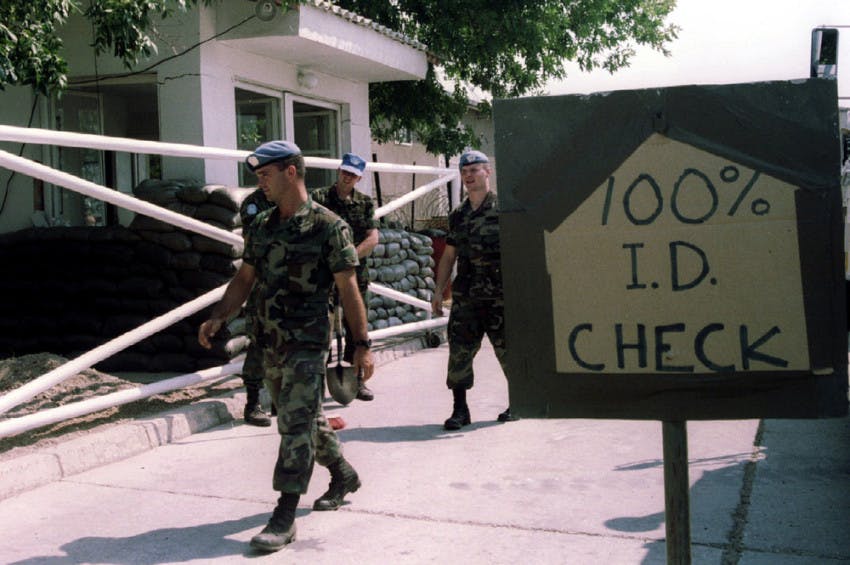
2002, West Africa: Child abuse scandal
The UN’s refugee agency (UNHCR) and Save the Children find “a chronic and entrenched pattern” of sexual exploitation and abuse of refugee children at the hands of aid workers in Liberia, Guinea, and Sierra Leone. The abuse ranges from casual encounters between exploiter and child to organised prostitution in refugee camps.
The UN’s refugee chief, Ruud Lubbers, downplays the problem, calling such issues “very scarce”, but a task force of the InterAgency Standing Committee, a top-level forum for humanitarian agencies, finds the abuse to be “a global problem”. Its members (UN agencies and NGOs) draw up a code of conduct that bans paying for sex, and “strongly discourages” sexual relationships between aid workers and beneficiaries. A sector-wide plan of action to prevent sexual exploitation and abuse during humanitarian crises is launched.
From the Archives:
InterAction issues report on sexual exploitation (June 2002)
Reports that child refugees sexually exploited shock Annan (February 2002)
Agencies move to protect vulnerable from sex abuse (September 2002)
UN internal investigation into West Africa allegations (October 2002)
2003, UN: Stricter Rules
Paying for sex is banned, and relations between UN staff and “beneficiaries of assistance” are “strongly discouraged”, according to an October 2003 UN bulletin outlining new rules for staff. Organisations entering into “cooperative arrangements” with the UN must now also commit to the same standards.
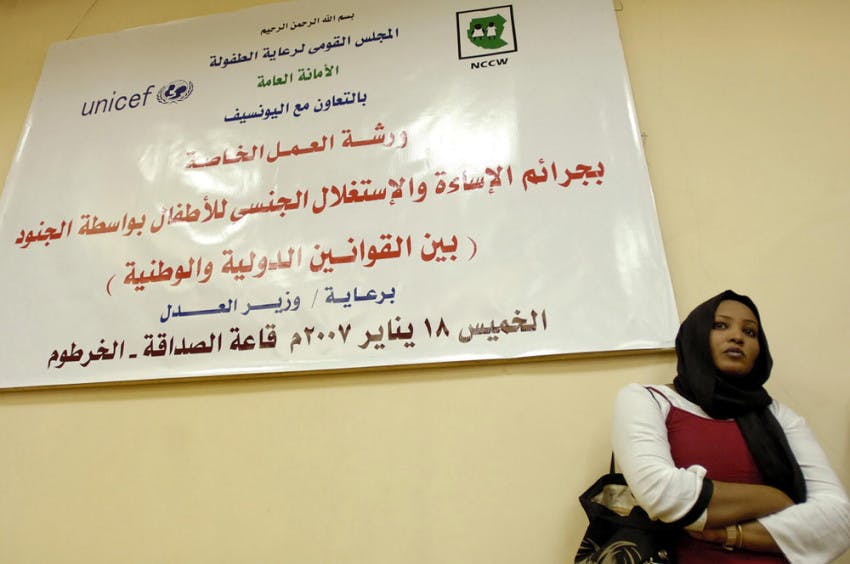
2004, DRC: More robust enforcement of peacekeepers
After allegations of sexual exploitation and abuse are revealed by peacekeeping personnel in the Democratic Republic of Congo, global investigations begin. A handful of peacekeeping personnel worldwide are fired. The next year, the UN releases a comprehensive strategy on sexual exploitation and abuse by peacekeeping personnel based on a review by Jordanian diplomat Zeid Ra’ad Al-Hussein. Conduct and Discipline Units are established within eight peacekeeping missions to prevent misconduct, handle complaints, and manage reporting.
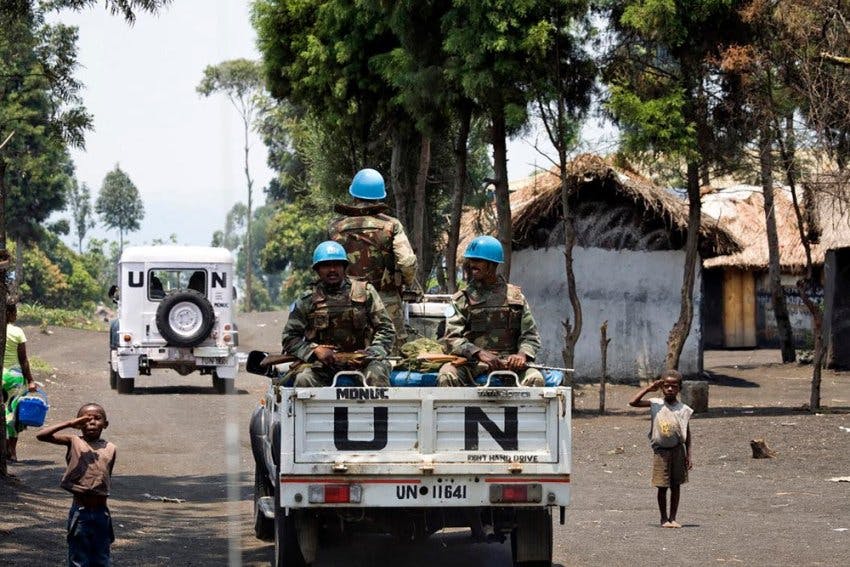
From the Archives:
2006, UN: Zero tolerance
UN Secretary-General Kofi Annan reiterates that the 2003 bulletin rules include peacekeepers of national armies operating under the UN flag. In a 2006 amendment, the rules are also extended to explicitly include consultants and contractors. Annan says he has a zero-tolerance policy but, as abuses continue, acknowledges that the message “has still not got through to all those who need to hear it”. The UN starts tracking data on allegations of misconduct, and two years later launches an online global Misconduct Tracking System, which confidentially tracks and compiles all allegations of misconduct, including sexual exploitation and abuse.
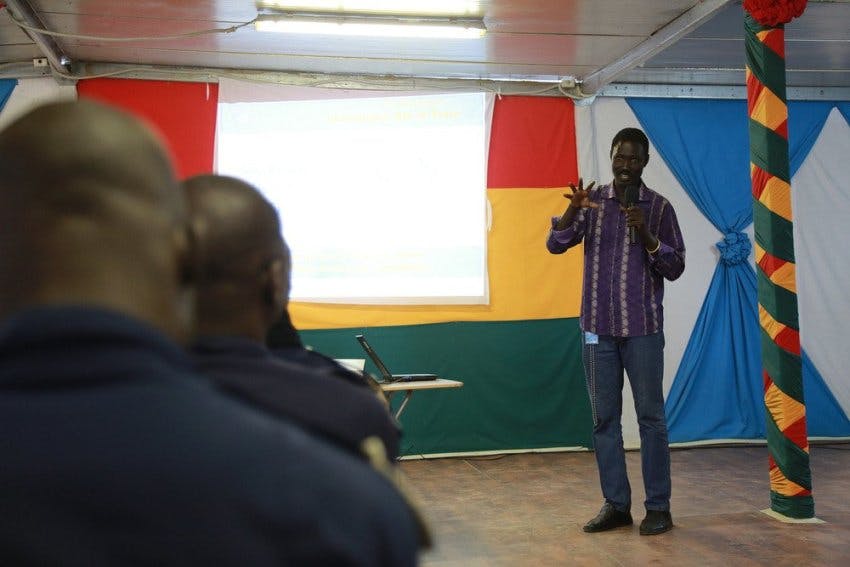
From the Archives:
2007, Haiti: Exploitation of children
An internal UN report reveals that at least 134 Sri Lankan peacekeepers exploited nine children in a sex ring in Haiti from 2004 to 2007, according to an investigation from the Associated Press. Although 114 are sent back to Sri Lanka as a result, none face criminal charges. Several peacekeepers from various countries are also accused of separate allegations of abuse before the Haiti peacekeeping mission ends in 2017.
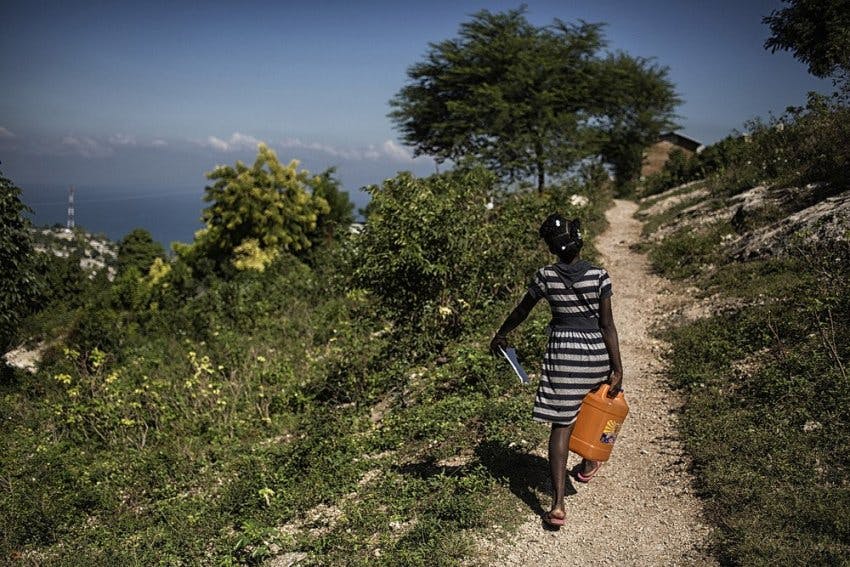
2010, A cultural problem?
“Why is it that institutional reforms and the theoretical introduction of a zero-tolerance culture have not yet produced the results once assumed?” IASC’s global review on SEA asks. They aren’t addressing the underlying behavioural drivers and culture, the report finds.
Meanwhile, a report from the Humanitarian Accountability Partnership highlights the weakness of reporting systems. Although they know SEA happens, aid recipients in Kenya, Namibia, and Thailand said they’d be hard pressed to complain, owing to the lack of confidentiality and security assurances.
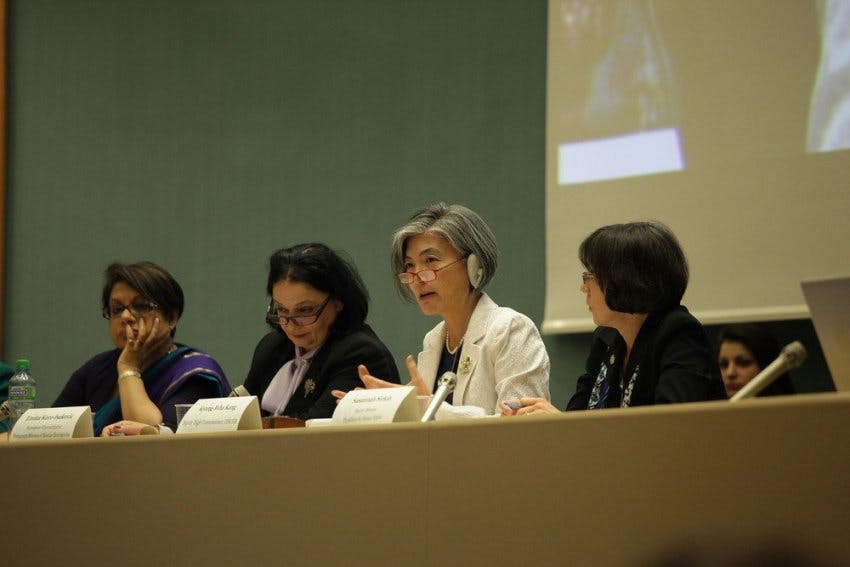
From the Archives:
Sexual exploitation and abuse 10 years on (July 2012)
2013, UN peacekeepers: Even higher number of cases
A leaked UN document reveals that the true number of sexual abuse cases stemming from peacekeeping missions may be far higher, due to “sigificant amouns of underreporting”. It also says that “sex and race bias” attitudes among military contingents are contributing to SEA continuing to be “the most significant risk” to peacekeeping missions.
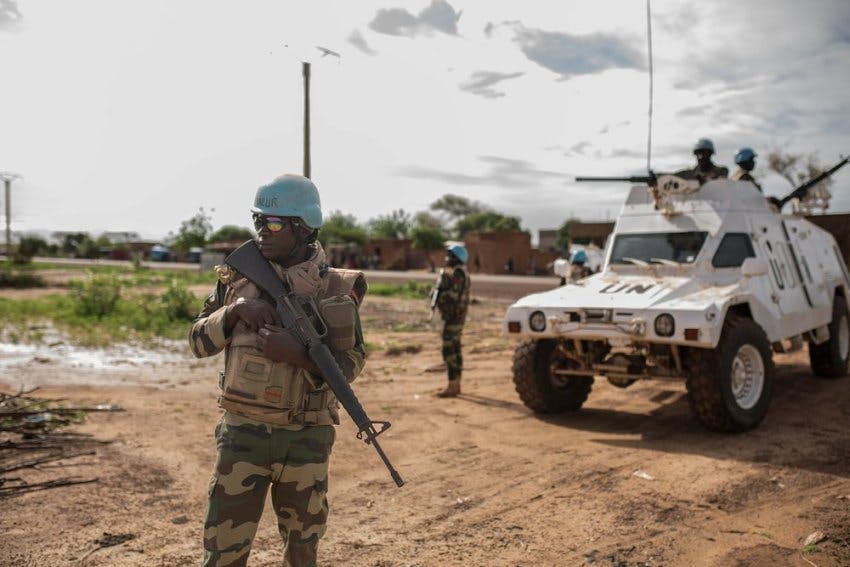
2015, CAR: Rape and murder claims
Rape and murder claims against UN peacekeepers in Central African Republic prompt the removal of UN mission chief Babacar Gaye. Secretary-General Ban Ki-moon calls sexual misconduct a “cancer in our system”. An enquiry later finds that the UN also mishandled reports of child abuse by a separate French peacekeeping force.
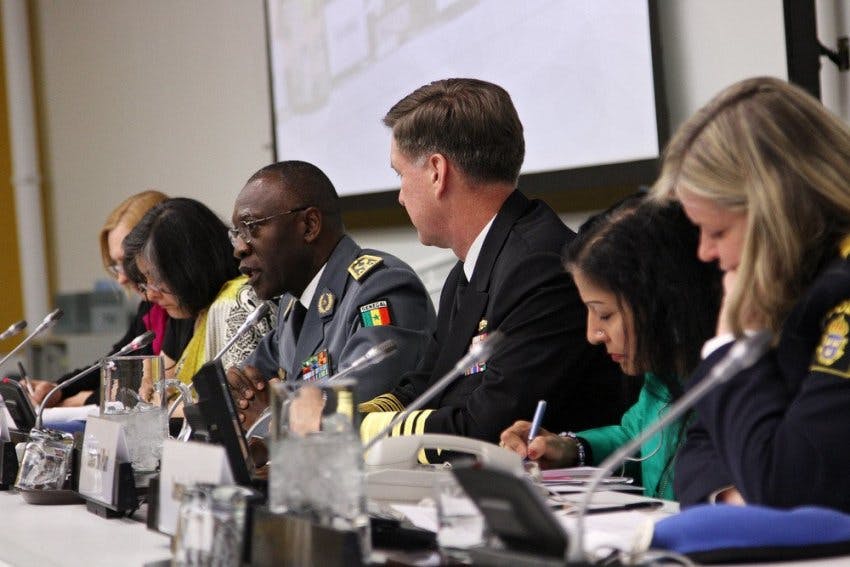
2016, CAR: The fallout continues
UN human rights official Anders Kompass, who exposed the CAR scandal, resigns over the organisation’s failure to hold its senior officials to account. Meanwhile, a UN Trust Fund is established to support victim assistance and support services.
From the Archives:
Exclusive: Top UN whistleblower resigns, citing impunity and lack of accountability (June 2016)
The ethical failure – Why I resigned from the UN (June 2016)
2017, Abuse inside the system
Aid recipients aren’t the only victims. A study on sexual assault in aid finds that 86 percent of those surveyed know an aid worker survivor of sexual violence. The survey was by Report the Abuse, a NGO highlighting sexual abuse within the humanitarian community formed by assault survivor Megan Nobert in 2015.*
2018, #AidToo
An investigation by The Times reveals that Oxfam covered up the use of sex workers by senior aid workers in the aftermath of the Haiti earthquake. The organisation faces a number of resignations and some donors withdraw funding.
The same year, UNICEF’s deputy director, Justin Forsyth, resigns after being accused of inappropriate behaviour by female staff members while previously working at Save the Children.
Over 1,000 female aid workers demand sector-wide reform in an open letter on sexual misconduct and gender inequality.
The aid accountability group, Core Humanitarian Standards Alliance, calls it “a transformative moment for PSEA, harassment, and overall safeguarding for all organisations”. Aid agencies and donors tighten up their rules. But only in 2017 had Oxfam banned paying for sex.
A global registry is floated, amongst new initiatives to stop repeat offenders.
From the Archives:
The humanitarian MeToo moment: Where do we go from here? (March 2018)
MeToo, AidToo: The next steps (March 2018)
EXCLUSIVE: Oxfam sexual exploiter in Haiti caught seven years earlier in Liberia (February 2018)
Former Save the Children staffers speak out on abusive culture under Justin Forsyth (February 2018)
#AidToo: After Oxfam, what to watch (June 2019)
Q&A | Reparations and rehabilitation – how Oxfam can build back better (June 2019)
2019, CAR: Investigation errors
An investigation by The New Humanitarian reveals how a litany of blunders by investigators in a UN sex abuse case in Central African Republic may have led to dozens of cases being dismissed, and survivors denied support and justice.
The same year, Human Rights Watch reports sex-for-food exploitation of cyclone-affected people by local officials in Mozambique.
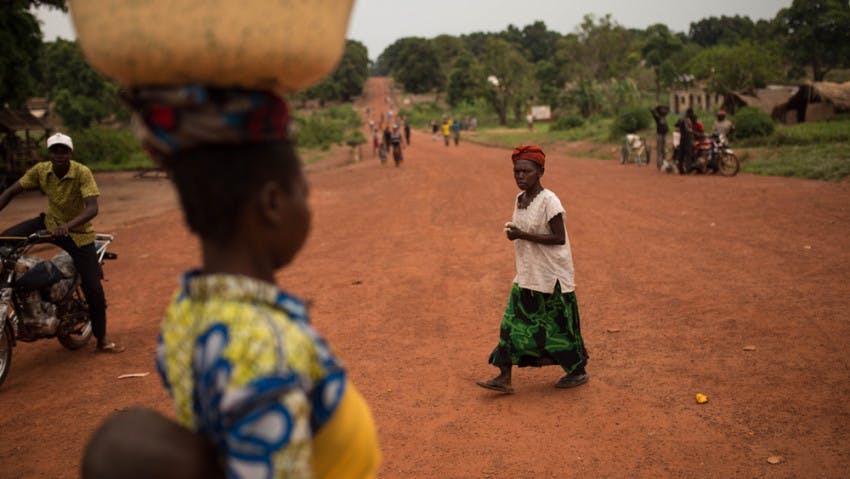
From the Archives:
Celebrating women in aid: 10 stories for World Humanitarian Day (August 2019)
EXCLUSIVE: Blunders in Central African Republic sex abuse probe detailed in internal UN review (October 2019)
How delays and disbelief let down sex abuse victims in Central African Republic (November 2019)
2020, Africa: Widespread abuse
The New Humanitarian and the Thomson Reuters Foundation expose widespread sexual exploitation during the 2018-2020 Ebola response in Congo, including the “open secret” of trading sex for jobs. Dozens of women reveal exploitation by staff of UN agencies, NGOs, and the DRC government. Senior aid officials are “appalled” and “outraged” at the “reprehensible behaviour”. The investigation prompts the UK’s Foreign, Commonwealth and Development Office (FCDO) to revise its policy from one that strongly prohibits its staff from exchanging money or jobs for sex, to prohibiting it.
Meanwhile, a leaked review of aid corruption in the Democractic Republic of Congo finds that few SEA cases involving aid sector workers are ever known about because reporting mechanisms don’t work and perpetrators pay off victims.
And in Uganda, the UN launches an investigation into allegations of sexual abuse and the exploitation of women in the drought-stricken Karamoja region.